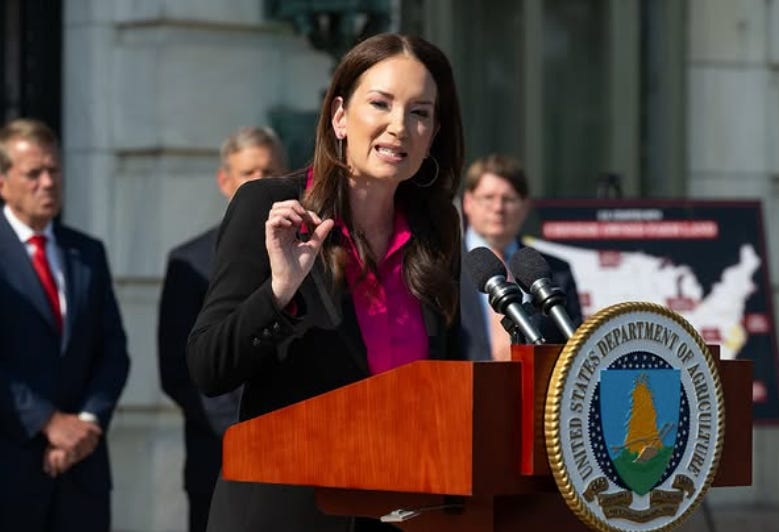Rollins announces plan to decentralize and streamline USDA
Over half the department's D.C.-based staff will be moved to five regional hubs "closer to constituents."
In line with the Trump administration’s push to streamline government, Agriculture Secretary Brooke Rollins has announced a sweeping plan to decentralize the Department of Agriculture by relocating most D.C.-based employees and cutting overhead and redundant support offi…




